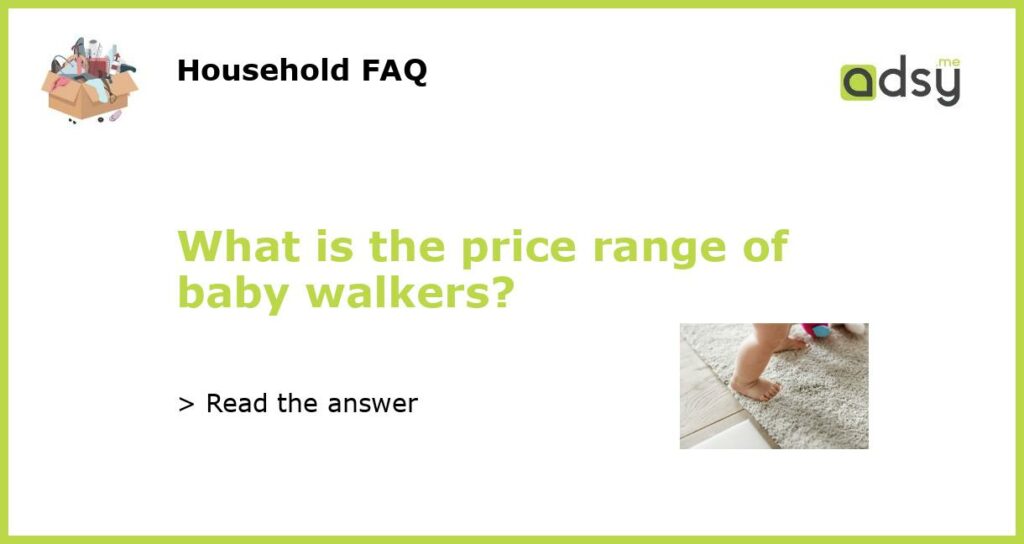The Basics of Baby Walkers
Before going into the price range of baby walkers, it’s important to understand what they are and how they’re used. Baby walkers are devices that infants sit in and use their feet to move around. They typically have wheels or casters that allow the baby to freely move around the room. While some parents consider baby walkers as a great tool for their baby’s entertainment and development, others are concerned about safety issues and potential accidents that may occur.
The Average Price Range of Baby Walkers
There are a variety of baby walkers available in the market at different price points, ranging from $20 to $200. The lowest-priced baby walkers are basic models that may not have any extras or bells and whistles, while the high-end models come with additional features such as activity centers, toys, music, and adjustable height settings. The mid-range baby walkers, which cost around $50 to $100, usually offer a good mix of affordability and quality.
Factors Affecting the Price of Baby Walkers
A few factors influence the price range of baby walkers, including the brand, materials used, quality, and features. Some popular baby walker brands include Fisher-Price, Baby Trend, Joovy, and Bright Starts, and each brand offers different features at various price points. Additionally, the quality of materials used in constructing the baby walker can determine if it will last longer, thus affecting the price. Walkers with features such as adjustable height settings, snack trays, and activity center attachments also tend to be pricier.
Alternatives to Traditional Baby Walkers
If you’re hesitant about purchasing a traditional baby walker or want to explore other options, there are alternatives available. A Push Walker, for instance, allows babies to push a handlebar while standing and moving around, thus strengthening their legs and motor skills. Another alternative is a stationary activity center, which allows babies to sit and play with interactive toys while remaining stationary. These alternatives have similar developmental benefits as traditional walkers but may not have the same level of mobility.
What to Consider When Buying a Baby Walker
When deciding on the best baby walker for your child, there are several factors to keep in mind, such as safety, stability, comfort, versatility, and durability. Always ensure that the model you’re considering meets the latest safety regulations and standards to prevent accidents and potential injuries. Make sure the walker’s height is adjustable, and it has a comfortable seat, removable pads, and sturdy wheels. Also, consider the weight, size, and mobility of the walker, as well as the ease of cleaning and storing it.






